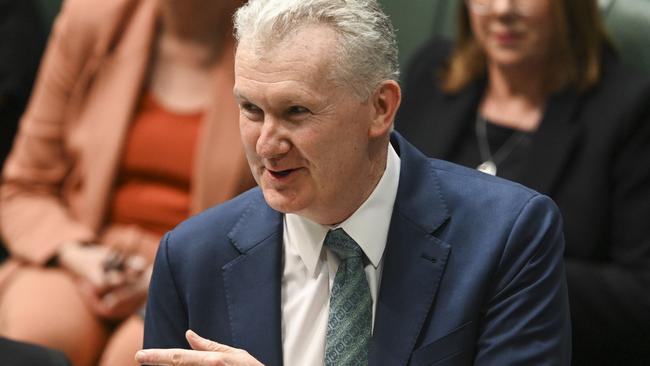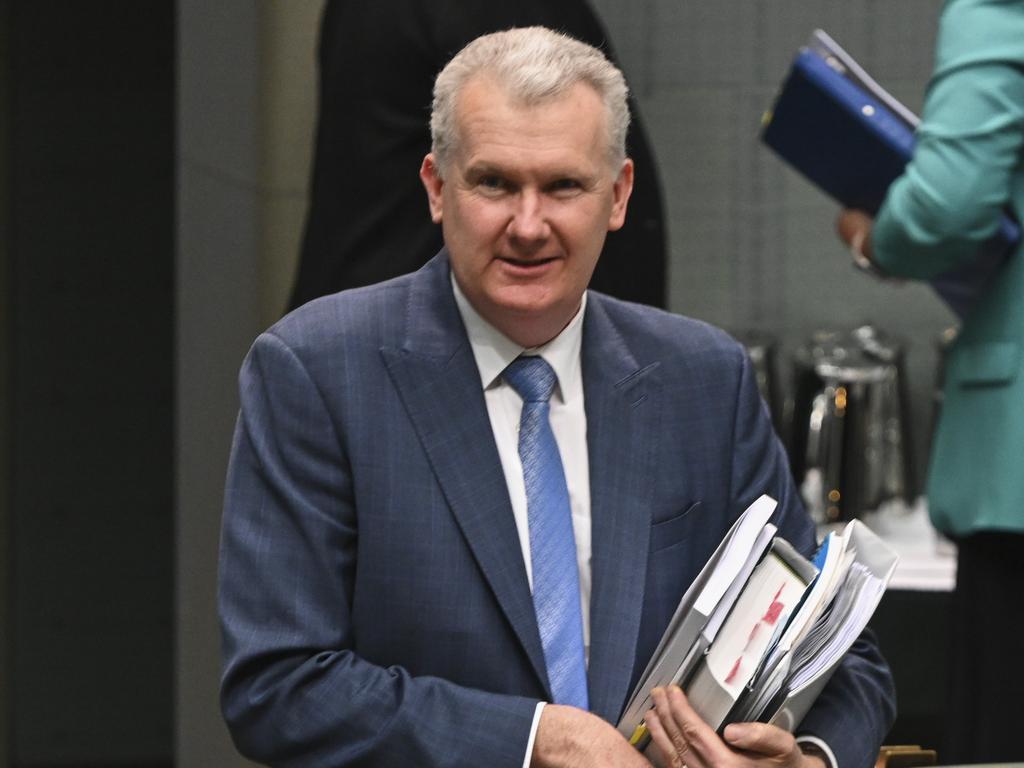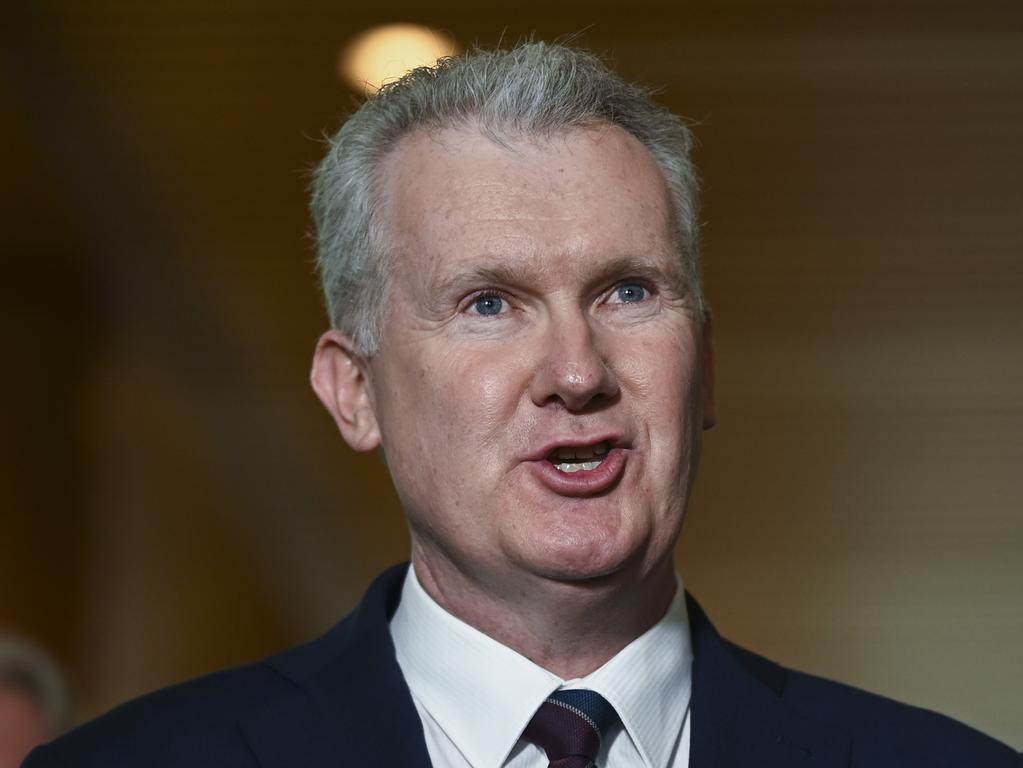
Knott, chief executive of the Australian Resources and Energy Employer Association, is an industrial relations warrior, having been a vocal, hardline critic of Labor’s policies for years
In 2022, Knott threatened to organise a major campaign against the government’s Secure Jobs Better Pay bill similar to the $20m campaign against the mining tax “but on steroids”. He has rarely passed up an opportunity to attack the ALP or unions, his colourful rhetoric at times so out there that his political opponents – and even some rival employer groups – like to characterise him as an cartoonish ideologue.
Times change. Knott’s natural allies, the Coalition, are in opposition. They don’t have the numbers in the Senate, and the government, provided they have the support of the Greens, require just one crossbench vote – hello David Pocock – to get the Closing Loopholes Bill passed next year.
Knott took soundings from across the political spectrum, including from Coalition MPs, which led him to believe Labor would eventually get the bill passed.
This political reality required pragmatism and he chose on behalf of his members spanning the mining, oil and gas supply chain to negotiate a deal rather than join the “kill the bill” campaign led by the Minerals Council and the Business Council of Australia.
An initial breakthrough between Knott and Burke earlier this year fell away after the bill was released and Knott was unhappy with the detail. He is now satisfied the proposed amendments significantly strengthen the proposed exemption for service contractors.
It represents a third win for Burke following his deal with the Australian Hotels Association on casuals and agreement with Uber, Doordash and Menulog over gig work amendments.
Burke is successfully waging, via behind-the-scenes consultation and negotiation, a divide and conquer counter-offensive against the business groups.
He will never get the support of the MCA and BCA, given their biggest and most influential members include BHP and Qantas, which vehemently oppose the commercial impact on their operations of the labour hire changes.
Yet being able to progressively pick off other employer groups and major companies gives Burke momentum as he pushes to convince the crossbench to pass the bill from February.
By making changes, Labor presents itself as reasonable, willing to take on constructive employer suggestions about the bill and consider recommendations flowing from a rigorous Senate inquiry process.
When news of the latest deal breaks, the hold-out employer groups, which are spending millions of dollars trying to torpedo the bill, will undoubtedly seek to discredit it.
Yet the agreement will put them under more pressure, and likely move Labor closer to securing the bill’s passage through the Senate.








Tony Burke’s breakthrough deal with Steve Knott is the most remarkable alliance in industrial relations politics since Christian Porter revealed he had become “best friends forever” with Sally McManus at the height of the Covid crisis.